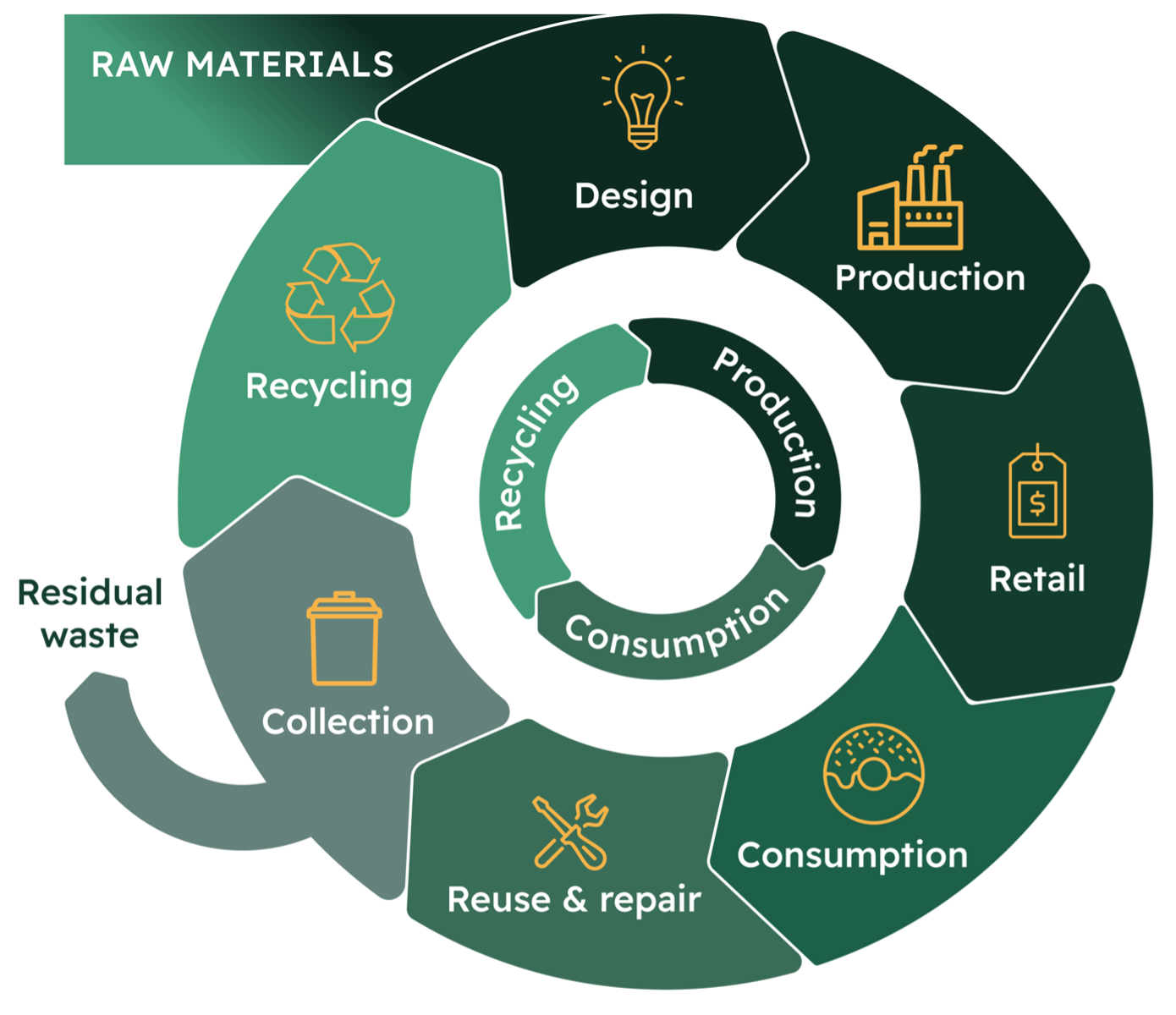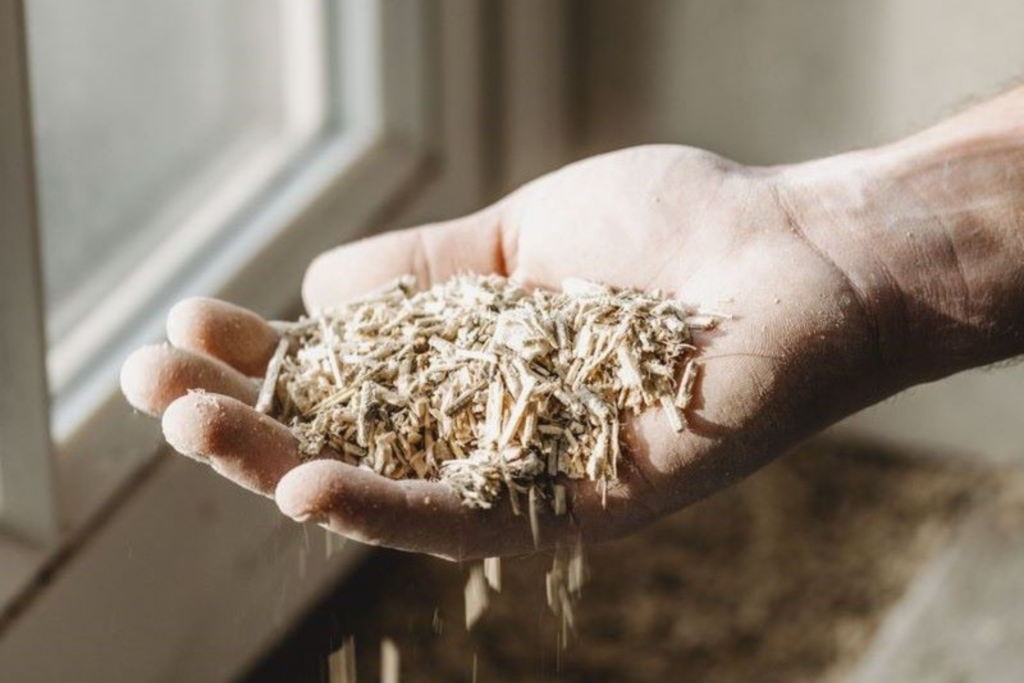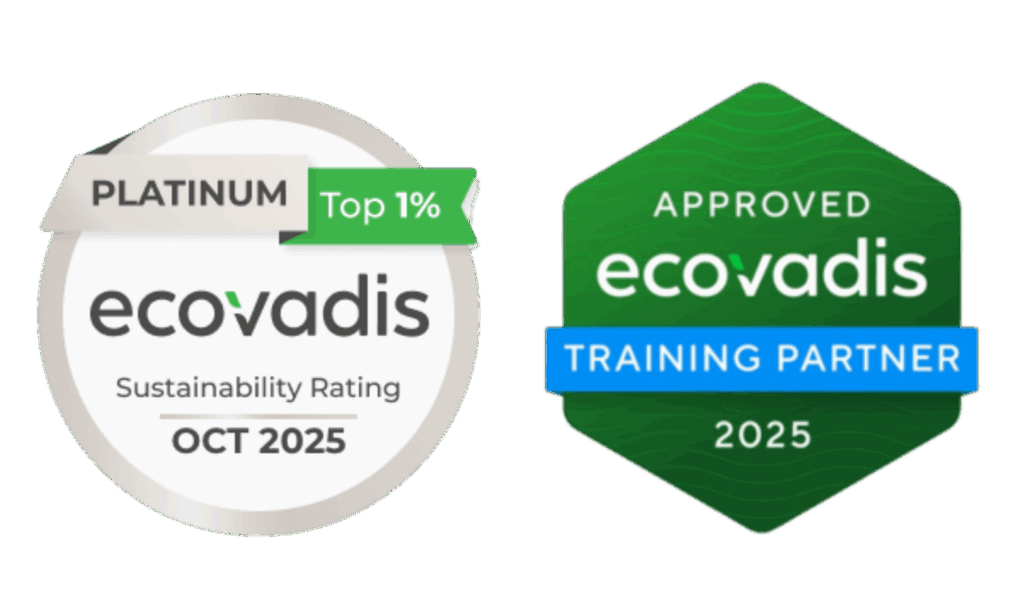EXIE
Levenscyclusanalyse als instrument om milieu-impact in kaart te brengen.

Hoe onderbouwt u groene claims en streeft u naar voortdurende duurzame verbetering?
Als u een duurzaam product op de markt brengt, zijn er een paar belangrijke zaken om rekening mee te houden. Goede bedoelingen leiden niet altijd tot goede daden. Veel producten worden ontwikkeld met duurzaamheid in gedachten, maar zonder dat de impact daadwerkelijk wordt gemeten. Door de voetafdruk van een product te analyseren, kunnen organisaties beter begrijpen welke impact het heeft en weloverwogen beslissingen nemen.
Maar hoe begint u eraan? Een van de mogelijke methoden is een levenscyclusanalyse (meestal afgekort als LCA). Deze uitgebreide studie onderzoekt de milieu-impact van een product gedurende de volledige levenscyclus, van wieg tot graf. Voor onze klant EXIE was dit de perfecte methode om de impact van CaNaDry® in kaart te brengen, een gepatenteerd biocomposiet dat bestaat uit een mengsel van hennepschillen, schevenkrullen en kalk.
De impact van een product meten, van wieg tot graf
CaNaDry® van EXIE is een innovatief en duurzaam isolatiemateriaal met het potentieel om de ecologische voetafdruk van de bouwsector aanzienlijk te verkleinen. Een van de belangrijkste componenten, hennep, vangt CO₂ op tijdens de groei. Bovendien is het product ontworpen voor hergebruik na de sloop van het gebouw waarin het wordt toegepast. De duurzame voordelen zijn duidelijk, maar hoe kunnen ze worden aangetoond en op een eerlijke manier worden gecommuniceerd?
Onze aanpak bij het uitvoeren van een levenscyclusanalyse (LCA) voor EXIE’s CaNaDry® was het kwantificeren van de milieu-impact van het materiaal gedurende de volledige levenscyclus:
- Teelt en winning van de grondstoffen
- Productie
- Distributie
- Gebruik
- Afvalverwerking
We onderzochten de impact van het product op verschillende milieuaspecten, zoals CO₂-uitstoot en de mogelijke invloed van mestafspoeling op de waterkwaliteit.
Het belang van onafhankelijke validatie
De LCA dient als voorbereiding op een Environmental Product Declaration (EPD), die wordt geverifieerd door een onafhankelijke externe partij (Vinçotte, a member of the Kiwa group, in dit geval), en goedgekeurd door de Belgische federale overheid. Met deze verklaring kan het product vervolgens worden opgenomen in Totem, een databank en tool voor de Belgische bouwsector om de milieu-impact van gebouwen en bouwmaterialen te beoordelen.
Om in aanmerking te komen voor deze verklaring moeten bepaalde vereisten worden nageleefd. De methodische aanpak van de LCA, conform de ISO-normen die van toepassing zijn op LCAs, garandeert dit. Het is echter een uitgebreid, complex en tijdrovend proces, vooral bij de eerste uitvoering. Het vereist specifieke expertise, en daar kwamen de duurzaamheidsconsultants van The Ecological Entrepreneur EXIE te hulp.
LCA als opstap naar verdere verduurzaming
In onze visie is een LCA een vertrekpunt, geen einddoel. Naast dat het een solide basis vormt voor een EPD en de huidige impact valideert, is het ook een uitstekend instrument om potentiële blinde vlekken en verbeterkansen bloot te leggen.
Het is ook belangrijk om te benadrukken dat een LCA alleen de milieuaspecten van duurzaamheid behandelt. Hoewel het een waardevolle component is van een duurzaamheidsstrategie, vormt het slechts één stukje van de puzzel. Een complete strategie moet ook rekening houden met de sociale en bestuurlijke aspecten van duurzaamheid.
Vertrouwen opbouwen door transparantie
Om consumenten te beschermen en misleidende duurzaamheidsclaims – ook wel greenwashing genoemd – tegen te gaan, heeft het Europees Parlement de Green Claims Directive ingevoerd. Deze richtlijn verplicht bedrijven om:
- Duurzaamheidsclaims over hun producten te onderbouwen.
- Transparant en zo nauwkeurig mogelijk te communiceren.
- Bewijs te leveren ter ondersteuning van hun duurzaamheidsclaims.
Schending van deze richtlijn kan juridische en financiële gevolgen hebben.
Maar transparantie biedt meer voordelen dan alleen wettelijke naleving. Het onderbouwen van groene claims met solide data is essentieel om consumentenvertrouwen op te bouwen en geloofwaardigheid te versterken. Dit stelt EXIE in staat om de duurzame eigenschappen van CaNaDry® als een uniek verkoopargument te benutten en in te spelen op een groeiende markt.
Wat is de volgende stap voor EXIE?
De volgende stap is het herhalen van het LCA-proces en het opnieuw aanvragen van externe validatie in Nederland, een belangrijke afzetmarkt voor EXIE. Omdat de regelgeving daar afwijkt van die in België, moet de beoordeling opnieuw worden uitgevoerd. Gelukkig helpt de ervaring in België om dit proces te vergemakkelijken.
Over EXIE
EXIE is een producent van 100% natuurlijke isolatiematerialen voor zowel nieuwbouw- als renovatieprojecten. Ze verwerken hun eigen lokaal geteelde hennep en transformeren zowel hennep als stro tot isolatiematerialen voor de bouwsector. Hun missie is om een voortrekkersrol te spelen in de overgang naar een groenere en duurzamere toekomst voor de bouwindustrie.
En u?
Heeft u hulp nodig bij uw eigen levenscyclusanalyse? Neem contact met ons op!

Wij brengen ecologie en economie samen voor uw organisatie! Kies uw duurzame toekomst



